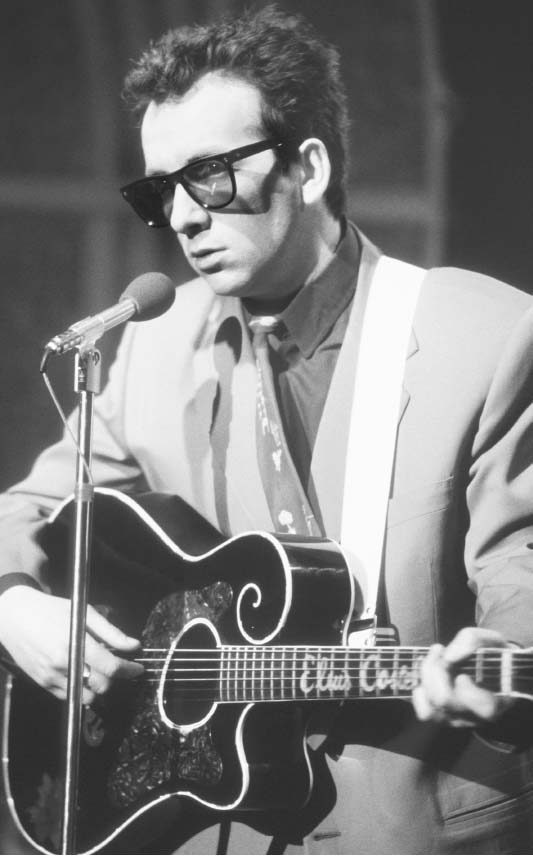
A rattle of dry sticks on drums, then piano and double-bass descending in parallel. ‘Is it worth it?’ sings Robert Wyatt’s distinctive, thin voice. ‘A new winter coat and shoes for the wife/And a bicycle on the boy’s birthday …’
In 1982, in a town of mass unemployment, everyone is talking about whether the shipyards might reopen. There is an unspoken subtext: the only reason the yards might again employ men is because Britain is at war with Argentina over the Falkland Islands.
Elvis Costello, who wrote the words of the song while the war was still being fought, is not always subtle in his politics. (When he imagined the then still-far-off death of Margaret Thatcher, in ‘Tramp the Dirt Down’, the surrounding lyrics were less nuanced than that title makes it sound.) But here he has the lightest of touches. ‘Dad,’ says a teenager, ‘they’re going to take me to task [that is, to the naval task force dispatched to recapture the islands]/But I’ll be back by Christmas’ – an ironic echo of First World War optimism, although in fact by Christmas 1982 the task force was indeed back in Britain.
‘Shipbuilding’ was pretty much the last time a popular song about war made a mark on the public consciousness in Britain. Vietnam had spawned a whole sub-genre; there were plenty of songs about the Troubles in Northern Ireland. By the time the war on terror rolled round, popular music in the English-speaking world had abandoned political commentary. Iraq and Afghanistan and the surrounding paranoia were nowhere directly addressed.
Although ‘Shipbuilding’ is specific in its time and setting, it has been covered surprisingly often. Costello’s own version has Chet Baker on trumpet, lending the smoky atmosphere of a working men’s club. Tasmin Archer released an EP of brightly-sung Costello covers in 1994, leading off with a reading of ‘Shipbuilding’ that smooths out its unease. Britpop Bowie-obsessives Suede recorded the song in 1995 for a charity compilation. Their reading is faithful, Brett Anderson’s glam accent a fair approximation of Wyatt’s reedy treble, a guitar solo by Richard Oakes taking the place of Baker’s trumpet.
Other memorable versions are rooted in concept albums. June Tabor, from landlocked Warwickshire, has always been obsessed with the sea, and her nautical album Ashore includes the song, with Huw Warren’s piano navigating around the original melody. And The Unthanks’ side-project Songs from the Shipyards offers a version in the accents of Tyneside. Adrian McNally sings the verses, while Rachel and Becky Unthank – as the ‘women and children’ – chorus ‘it’s just a rumour, just a rumour that was spread around town. …’ It makes the community’s divisions starker than ever.
One reason, perhaps, why Costello’s lyrics are so measured is that the political left in Britain was unsure how to react to the war. The initial impulse was to see it as an imperial adventure; on the other hand, there was a risk of being seen as objectively pro the Argentine junta. Hence, perhaps, the decision to focus on the human cost of the conflict rather than explicitly taking sides.

Indeed, although Costello’s 2013 song ‘Cinco Minutos con Vos’, conceived as an Argentine answer to ‘Shipbuilding’, begins with a dig at Thatcher urging Britons to ‘rejoice’, its central image is not of conscripts going down with the torpedoed Argentine warship General Belgrano. It is of a dissident being thrown out of a plane into the River Plate. ‘And down I went down, like the twist of a screw/Down into the silver, above me the blue.’ So, was it worth it? The question still unsettles. And the jobs in the shipyards never did come back.
David Honigmann